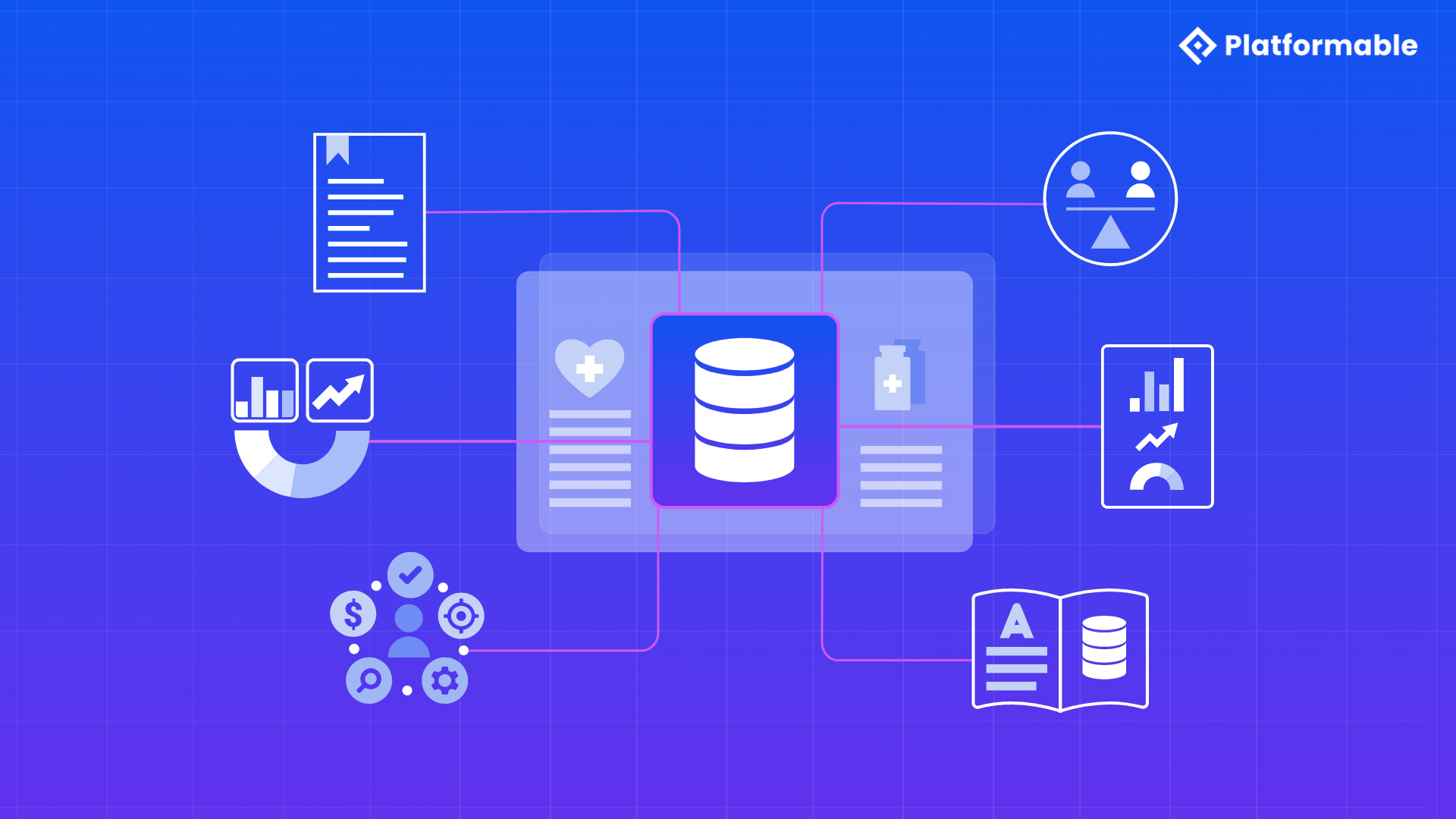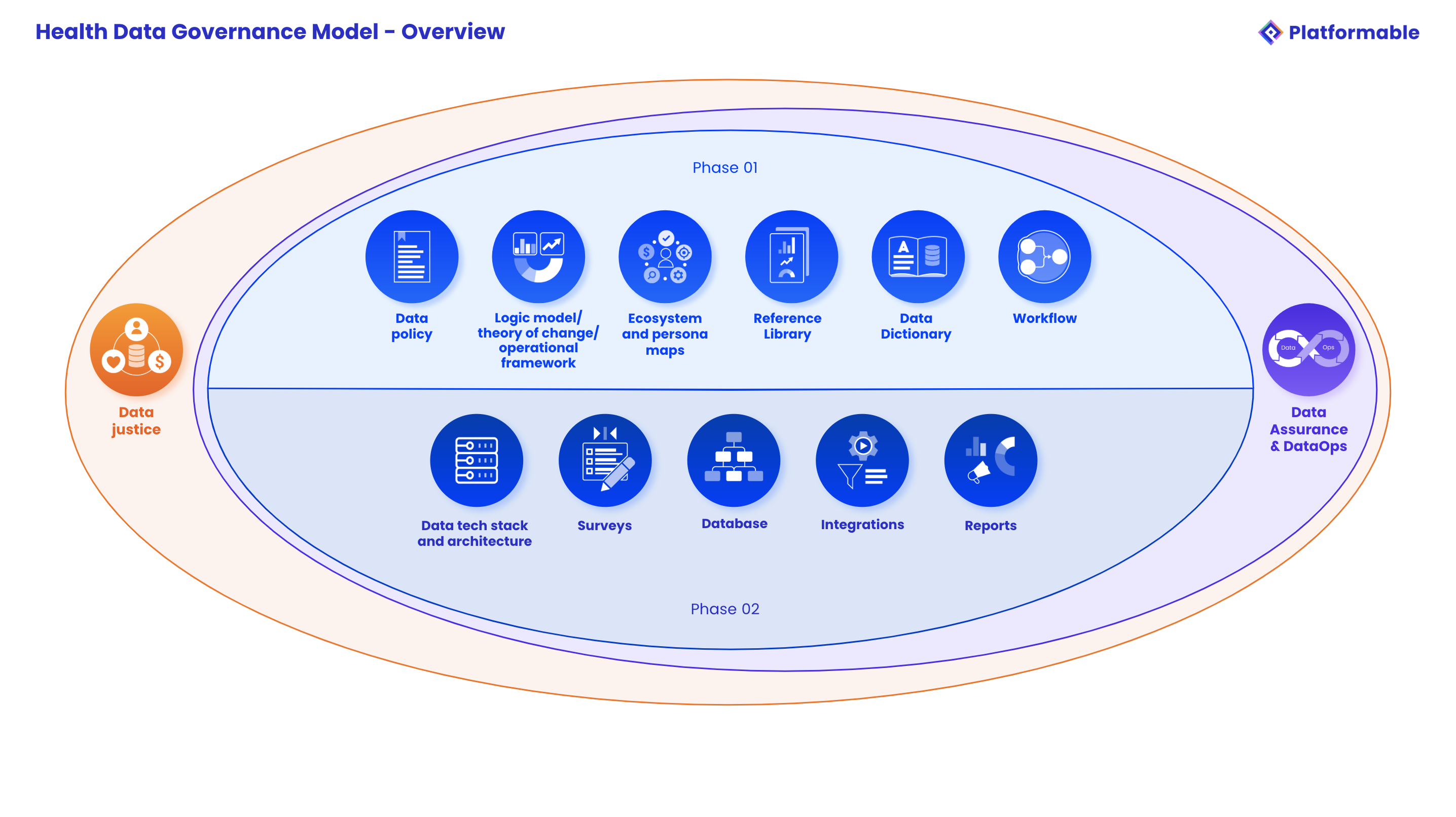Understand
Health Data Governance Framework (Data Governance for Digital Health Ecosystems 1)

Introduction to the Health Data Governance Framework
With the explosive growth of AI in healthcare, new regulations such as the European Health Data Space, and the need to optimise health delivery expenditure using data to guide decisions, health data governance is more important than ever. Health data governance has already been a top-of-mind concern for those addressing data privacy concerns, commercial opportunities, health inequalities and service access challenges, and encouraging new research, but now with AI, regulatory changes, and restricted resource budgets, health data governance practices are essential.
While tooling and data science practices are available to manage technical aspects of health data governance, such as introducing controlled vocabularies, metadata, data dictionaries, and improving the quality of data being analysed and used, there are less clear-cut processes for managing a whole-of-organisation health data governance framework. From a health data governance perspective, you need:
→ To manage data systems that are easily accessible by the right people, trustworthy, safe, and secure.
→ To assess that data sharing respects data privacy regulations and protects the patient, as well as commercial and community interests, while improving health outcomes.
→ To continually apply emerging best practices and make use of high quality data tools, including AI, where it is appropriate
→ To establish and automate robust workflows and contribute to system design
→ To support colleagues, teams, external partners and patients in data literacy and to train the builders and users of data systems.
There are six key benefits that rise from digital health ecosystems, and effective health data governance is key to generating this value.

These benefits are described in greater detail in our health data governance overview.
A health data governance framework recognises that organisations — and the ecosystems they operate within — will need to focus on generating and measuring these benefits when managing and making use of health data.
A Comprehensive and Cohesive Health Data Governance Framework
At Platformable, we have drawn on industry best practices and taken a contextual, user-centred design and systems thinking approach to health data governance. It has been presented and tested with health organisations including the World Health Organization, pharmaceutical companies, and non-profit, equity-focused community health organisations.

Our Health Data Governance Overview post describes the various elements in this model.
Now, we want to dig deeper into each component in the model. Over the following posts, we will look at:
- The data justice context
- Each of the six components of Phase 1
- The five components of Phase 2, and
- The approaches that can be taken to ensure data quality and management through data assurance and DataOps approaches.
We will share information from our experience and our work with clients, from research and academics as well as grey literature, and from leaders across the health data sector to help you develop your skills around effective health data governance.
Through this series, we want you to be able to build a health data governance framework that makes better use of health data wherever you need it, in ways that respect the data sources, and that focuses on generating value for all ecosystem stakeholders. Make sure you keep up with each post by subscribing to our newsletter, see the footer below. Or reach out to us via calendly to learn more.

Mark Boyd
DIRECTORmark@platformable.com
Eric Rochman
EXTERNAL PARTNER